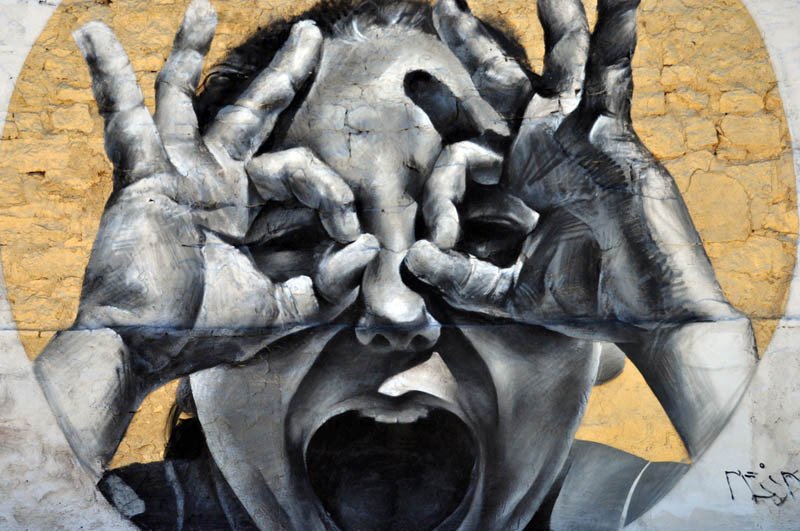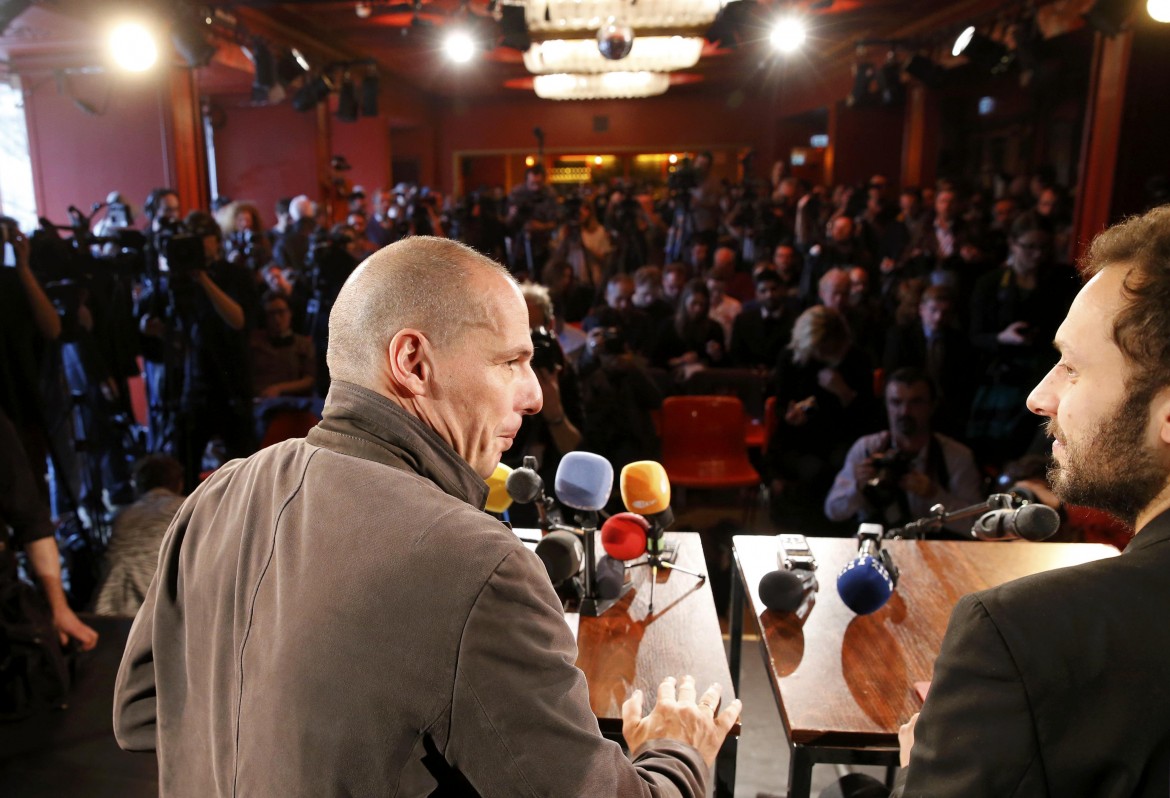In the near future, the issue of autonomy, or independence, seems destined to occupy a central and very complicated position in the European Union. In the sense that it will no longer apply only to the relationship between the regions claiming independence and the nation-state to which they aspire to separate from, but it will pose political problems of a general nature that could topple the structure of the European Union itself.
The union, in its treaties and its policies, has completely evaded the question, implicitly adopting the international law position known as the “non-interference” principle. In short, especially after the outcome of the Catalan and Spanish elections, independence can no longer be an affair exclusively for the Catalans, Basques, Scots or Corsicans, but it becomes an affair affecting all Europeans and their concept of democracy.
Regional oligarchies
Let’s agree, however, to define the premise clearly. Those who do not like nation-states, including this writer, certainly cannot be satisfied with their multiplication. What happened after 1989 confirmed this decisive aversion. From the former Yugoslavia to the disintegration of the Soviet Union, we have seen a proliferation of small countries with an ultra-nationalist tendency, and the spread of bloody ethnic or identity conflicts, with the frequent use of what Hobsbawm and Ranger called “the invention of tradition.” Western hegemonic interests and regional oligarchies have largely ruled and manipulated these processes under the always equivocal banner of “self-determination of peoples.” That expression has often superimposed the social and cultural reality of the territories, the aspirations of the lower classes and the self-interest of a ruling class in search of greater expansion of their sphere of power.
To take a current example, Artur Mas, the already strongly criticized president of Catalonia, is one of the most obvious expressions of this form of usurpation by the regional oligarchies. The aspiration to independence has always tried to suppress or neutralize the current class conflict by drowning it in the swamp of the indistinct growing “national interest.” This is the reason why it is always wise to distrust. Although we should not forget that for the Catalans or the Basques, the counterpart was the centralism of fascist Franco’s Spain, for long and painful years. In short, the claim of independence can never be assessed in the abstract, but it must always be measured by its real democratic validity, with the social quality that substantiates it.
Europe’s eastern border has gone through a tragedy, and Spain is gearing up for a difficult political game. In Italy, meanwhile, a farce is being staged: calls for independence of the nonexistent Padania, an invented northern region. Padania heritage is as false as horned helmeted vikings and Celtic ceremonies. But separatist “Northern League” followers started blabbering about a “national currency” around 2011, and some local administrators even began to print it. The racism, however, was actually true, and ready to pass through lock, stock and barrel into an ultranationalist right that dotes on the National Front of Marine Le Pen and her anti-European demagoguery. As always, the results clarify the basis; the anatomy of man explains he’s just a primate. And the anti-Europeanism of the Northern League reveals a virulent nationalist calling that crosses all of its history up until the parties at CasaPound.
Narratives of identity
The relationship with Europe, therefore, is the first point on which to measure the political quality of autonomy. The pro-independence Catalans, Basques, Galicians and Scottish Corsicans are not anti-European. If anything, they see the union as an opportunity. The Scottish National Party has explicitly stated that the eventual exit of Britain from the European Union, the so-called Brexit, would be a reason to separate itself from the United Kingdom but not from Europe. For many, a farewell to the nation-state is accompanied by a desire for full integration into the European Union.
But even on this point, we must be careful: Europhilism can have an entirely instrumental character. The recognition of Europe, founded essentially on nation-states and the preservation of their prerogatives, can function as a vehicle to the legitimacy of new, arrogant country ready to dig in its heels like Viktor Orbán’ Hungary. A blank certificate of new sovereignty.
That’s what happened in the so-called “post-communist democracies.” In those countries, European affiliation served to cover the worst nationalist atrocities, the grimmest narratives of identity of small and large homelands. It has also worked as a permanent brake to the process of political integration in Europe.
The way in which these governments have responded to the refugee crisis indicates a second, decisive criterion against which to assess the quality of the independent countries: the welcome or rejection of immigrants. That is, how they manifest the “masters in our house” principle. There are, in this regard, local situations that work much better than the national states, as well as many far worse.
A risky bet
We have a serious problem. We cannot reject requests for autonomy in defense of the nation-state and its sovereign monopoly, but we cannot support independence as the foundation of new national sovereignties that would reproduce on a smaller scale, and possibly even a worse version of, the state from which they are separated. We must look, then, at the nature of the democratic process that develops in the territories, to its social context and its capacity for innovative policy.
The position taken by Podemos, which ensured its extraordinary electoral success (in coalition with other regional forces) in Catalonia, Basque Country and Galicia, takes on precisely this issue. Although opposed to the fragmentation of Spain, Pablo Iglesias’s party intends to respect the democratic self-determination of the separatist regions. A risky bet, with a very uncertain outcome, but it has the merit of indicating a way to open a new political space. For Europe, it would mean rethinking the relationship with what is less and less represented by the nation-states that, despite appearances, are holding it hostage in a stable compromise with the financial oligarchies: the relationship with the social movements, the territorial realities, European citizens dissatisfied with their respective governments, individuals and the productive forces pushed to the margins of the social pact.
The problem to solve
So that leaves us with another Europe, a mashup of territories and regional interests. Is it necessary at this point to demolish the integrity of the nation-states to put in motion a true process of European integration of this nature? And if the independent states created in such an environment cannot actually configure different policies from the nation-states or integrate with Europe, we are, of course, in the field of gambling and on the border of unknown lands. But in the Spanish laboratory this matter is about to become very real.
The day after the elections in Spain, journalist Lanfranco Caminiti wrote on his blog, “The Room of the Scirocco,” assuming just that horizon. In the essay, he recalled that the question of autonomy was related to welfare and the distribution of resources. It is known that the independent movement is generally accused of representing the self-interest of the richest and most productive groups, reluctant to take on the problems of the disadvantaged. An inadmissible accusation by nation-states patently unable to remedy their internal imbalances, that they even cynically exploit, deaf to the potential of the different territories and always geared to meet the requirements of the market.
On the other hand, the nation-states have proved poor mediators between European governance and local realities. Citizens oscillate between Brussels, with its absurd regulations, and national society, the so-called “country system,” with its low wages and welfare cuts. So one can only agree with Caminiti when he writes that it is not that the nation-state cannot afford the cost of welfare, but welfare cannot bear the weight of the nation-state any longer.
The talk of independence is an old way (and somewhat discredited by historical experience) to raise the issue of self-governance and its political framework. Podemos seems to have recognized the need to be ready to deal with this node. It is neither the party of independence nor the party of the nation. So what is it? That is still to be imagined.
–> Originally published in Italian at il manifesto on Jan. 19, 2015






